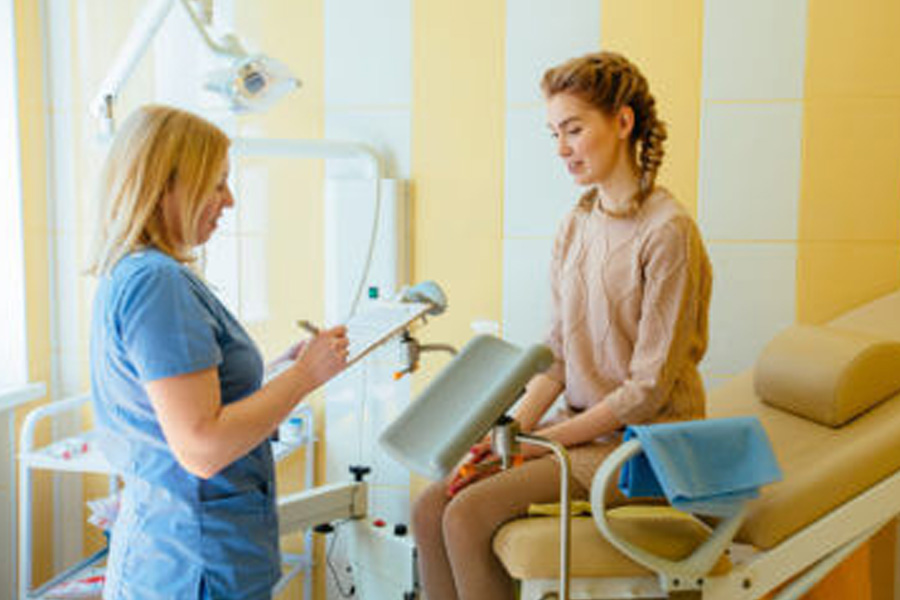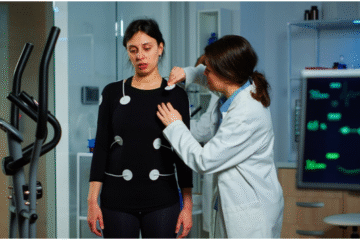Reproductive Health: All Women Need To Know

Reproductive well-being is essential to women’s overall health. This encompasses many topics, such as menstrual, fertility and contraception. Understanding reproductive issues and taking proactive steps towards maintaining them can greatly improve the quality of life for women. Lifeline Medical Associates provides comprehensive care for women at all stages of the reproductive process. This article will examine key aspects of reproduction health and provide valuable advice on how women may manage and optimize their well-being.
Understanding Menstrual Health
Menstrual health is the foundation for reproductive health. It is important to have a regular menstrual period. However, some women may experience irregularities. These include heavy bleeding and severe cramps. These issues could be a result of underlying conditions such as PCOS (polycystic ovary syndrome), endometriosis (endometriosis), or fibroids. It is crucial that women closely monitor their periods and seek medical attention if any concerns or significant changes are noticed.
Contraception & Family Planning
Contraception, which allows women the freedom to choose when and whether they have children, is essential to reproductive health. IUD implants and other long-acting reversible methods of contraception are very effective.
The type of contraceptive that is best for each individual depends on their health, lifestyle, and family-planning goals. Lifeline Medical Associates is a medical practice that offers women individualized consultations for contraception.
Fertility Awareness Challenges
Fertility has a big impact on reproductive health. Understanding your own fertility window – usually around ovulation – increases the likelihood of a successful conception. Some women are more likely to have fertility issues than others due to age, health conditions, or lifestyle choices.
Other common fertility issues are male factor infertility and tubal blockages. Many couples with infertility are able to find relief through the use of advanced reproductive technology, including in vitro fertility (IVF) or intrauterine fertilization (IUI). Early consultation with a specialist in fertility can help identify these challenges and effectively address them.
Prenatal Care During Pregnancy
The period of pregnancy can be life-changing for women and is one that demands careful monitoring. Prenatal treatment is crucial to ensure that both the mother and child are healthy and happy. Regular ultrasounds and screenings track the pregnancy and help detect any potential complications.
Prenatal care is centered around maintaining a well-balanced diet, staying active, avoiding harmful materials, and managing health conditions that already exist. Lifeline Medical Associates offer comprehensive prenatal service, supporting women during every stage in their pregnancy journey.
Managing Menopause
Menopause occurs naturally in women’s lives, and marks the end her reproductive years. It is usually between the ages 35 and 55 but it may occur earlier. Menopause can be characterized by the cessation and decline of menstrual cycle and estrogen, which leads to symptoms such as night sweats and mood swings.
Menopause can be managed by addressing these symptoms, and maintaining your health. Hormone-replacement therapy (HRT), which is a treatment option that can alleviate severe menopause symptoms, may not suit everyone. Menopausal symptoms can be controlled by non-hormonal remedies, lifestyle adjustments, and natural treatments. Regular healthcare check-ups are important during this time to monitor bone and cardiovascular health.
Preventive Health Actions
The prevention of disease is vital to reproductive health. Regular screenings help detect problems early, including Pap smears. Mammograms and pelvic exams. Vaccinations against HPV, for example, can prevent infections leading to reproductive health issues.
Healthy lifestyle choices, including regular exercise, a balanced eating plan, enough sleep, and stress reduction, are essential for supporting reproductive health. Maintaining a healthy diet, avoiding smoking and excessive alcohol consumption are important.
Mental And Emotional Wellness
Mental and emotional well-being is closely tied to reproductive health. Hormonal shifts in a woman’s life have an impact on her mental health and mood. Conditions such as postpartum anxiety, PMDD (premenstrual disorders), and premenstrual symptoms (PMS) require medical attention.
Women can effectively manage these conditions by seeking out support from their healthcare providers, counselors and support groups. Lifeline Medical Associates has a holistic perspective on reproductive health. They address both physical as well as emotional needs.
Conclusion
Women’s reproductive health is an important part of their overall well-being. Women can improve their quality of life by taking control of their reproductive and sexual health. Lifeline Medical Associates offers comprehensive care and support to empower women at all stages of their lives to make informed choices about their reproductive health. For long-term happiness and health, it is important to prioritize reproductive health by ensuring regular check-ups, healthy lifestyle choices, and mental health.
Leave a reply
You must be logged in to post a comment.











